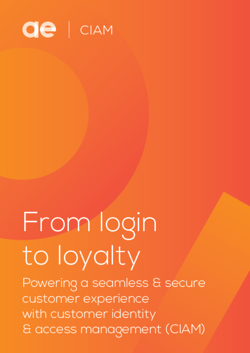
Is your cloud strategy ready for Europe's data sovereignity challenge?
Time to rethink your approach with cloud-native principles As global tensions rise and European data regulations become...

Time to rethink your approach with cloud-native principles As global tensions rise and European data regulations become...




.png?width=300&name=Blogvisuals%20(5).png)
-2.png?width=300&name=Blogvisuals%20(2)-2.png)
-1.png?width=300&name=Blogvisuals%20(3)-1.png)
-3.png?width=300&name=Blogvisuals%20(1)-3.png)
.png?width=300&name=Blogvisuals%20(6).png)

Everything you always wanted to know about Microsoft Fabric… but were afraid to ask

This whitepaper will discuss the challenges that come with implementing an effective Customer Identity & Access Management (CIAM) solution
A challenge faced by many organisations increasing their digital footprint: ensuring robust security without...
Explore our valuable content and get on top of your industry
We keep you in the loop with both snackable and long-form content, updates, and upcoming events—delivered right to your inbox. Sign up for our newsletter and never miss a beat!

